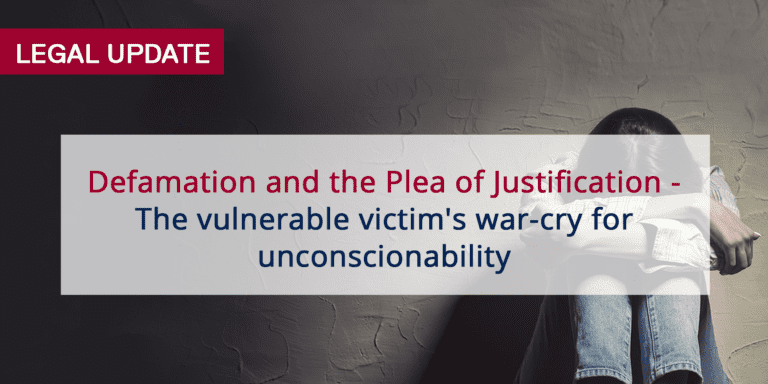
The Defendant (who was married) entered into an extra-marital relationship with the Plaintiff’s friend, Dr Chan, a senior consultant psychiatrist at the Singapore General Hospital (“SGH”) whom she had consulted as a patient. In the course of their intimate relationship, while on an Eastern Europe trip with Dr Chan, she discovered WhatsApp exchanges between him and the Plaintiff sharing details of potential patients and colleagues to have sex with.
After the Defendant’s relationship with Dr Chan ended, she lodged a complaint against him and the Plaintiff to the Singapore Medical Council (“SMC”) alleging that the Plaintiff and Dr Chan had been colluding to take sexual advantage of other vulnerable female patients. The Defendant also sent separate individually addressed emails attaching the SMC complaint to Dr Chan’s colleagues in SGH and two doctors in private practice. Her complaint to the SMC and the sharing thereof became the subject of the Plaintiff’s claim against her for defamation.
The Court found that the words were defamatory but dismissed the action on the grounds that the defence of justification had been established by the Defendant.
The Court held that the substance or gist of the defamatory material was true and it was not necessary for the Defendant to prove the truth of every word in the defamatory publication. The Defendant had proven that the Plaintiff had colluded with Dr Chan to take advantage of vulnerable female patients, she suspected they used their position as doctors to source for patients to have sex with, and they exchanged information about these women.
The Court found that the publication was substantially true for the following reasons:
The Court further held that some relationships such as a doctor-patient relationship were so inherently based on trust, that vulnerability could be presumed. In cases such as the present, where Dr Chan was a psychiatrist whose practice involved dealing with patients with mental health issues, the Court need not make a finding that the patient was in fact vulnerable. The foundation of a doctor-patient relationship was sufficient for a presumption of vulnerability to arise and a doctor’s failure to maintain proper sexual boundaries with his patients would be deemed exploitative.
This case re-establishes an oft-held legal principle that certain categories of people are deemed vulnerable and need protection, the underlying rationale being the prevention of professionals from abusing their position of trust or the protection of the victims who were particularly prone to being exploited.
In addition to a patient of a doctor as in this case, other categories have been held to include a student of a teacher[1] and even a client of a lawyer[2]. In the context of the legal profession, the Courts have held[3] that the making of advances by the solicitor towards his client while the solicitor-client relationship subsisted and at a time when the client was extremely depressed and emotionally unstable, had been tantamount to an abuse of the position of trust.
[1] AQW v Public Prosecutor [2015] 4 SLR 150 at [18]; Public Prosecutor v GCV [2018] SGDC 324; Public Prosecutor v NYH [2014] SGDC 432.
[2] Law Society of Singapore v Singham Dennis Mahendran [2001] 1 SLR(R) 1.
[3] Ibid.

RHTLaw Asia is a member of ONERHT, an integrated network of multidisciplinary professional and specialist services which empowers stakeholders to achieve purposeful growth.
© 2024 RHTLaw Asia LLP. All Rights Reserved.
| Cookie | Duration | Description |
|---|---|---|
| cookielawinfo-checkbox-analytics | 11 months | This cookie is set by GDPR Cookie Consent plugin. The cookie is used to store the user consent for the cookies in the category "Analytics". |
| cookielawinfo-checkbox-functional | 11 months | The cookie is set by GDPR cookie consent to record the user consent for the cookies in the category "Functional". |
| cookielawinfo-checkbox-necessary | 11 months | This cookie is set by GDPR Cookie Consent plugin. The cookies is used to store the user consent for the cookies in the category "Necessary". |
| cookielawinfo-checkbox-others | 11 months | This cookie is set by GDPR Cookie Consent plugin. The cookie is used to store the user consent for the cookies in the category "Other. |
| cookielawinfo-checkbox-performance | 11 months | This cookie is set by GDPR Cookie Consent plugin. The cookie is used to store the user consent for the cookies in the category "Performance". |
| viewed_cookie_policy | 11 months | The cookie is set by the GDPR Cookie Consent plugin and is used to store whether or not user has consented to the use of cookies. It does not store any personal data. |